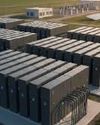Synergising circular economy and clean energy for sustainable transition
EPR Magazine (Electrical & Power Review)
|April 2025
Transitioning to a circular economy is a vital strategy and even a survival necessity to address the challenges of climate change, resource depletion, and biodiversity loss.
-

A circular economy represents a transformative approach to economic development that prioritises resource efficiency, waste minimisation, and environmental regeneration, unlike the traditional linear economic model, which relies on a “take, make, dispose” approach. Transitioning to a circular economy is a vital and necessary strategy for survival to meet the challenges of climate change, resource depletion, and biodiversity loss. This is especially true in developing countries like India, where growing public expectations and industrial expansion place immense pressure on natural resources.
Advanced economies are aiming to decarbonise by 2050 and India by 2070. The power sector will play a key role in this journey. Adopting the principles of a circular economy in renewable energy integration is crucial for sustainable growth. Traditional fossil-based power generation operating on the Rankine cycle achieves a low efficiency of 30-35 percent while significantly harming the environment. Fossil fuel extraction leads to landscape degradation and biodiversity loss, while mining activities and greenhouse gas emissions contribute to severe pollution. Additionally, the poor quality of coal, characterised by high ash content, results in contamination and complex disposal challenges. However, these environmental and operational issues also offer significant opportunities to implement circular economy principles, promoting sustainable practices and resource efficiency.
Application of circular economy in energy transition
The circular economy is based on three core principles, i.e., designing out waste and pollution by considering sustainability at the design stage, keeping materials in use through reuse and recycling to extend their life and value and regenerating natural ecosystems to achieve a net positive environmental impact.
Denne historien er fra April 2025-utgaven av EPR Magazine (Electrical & Power Review).
Abonner på Magzter GOLD for å få tilgang til tusenvis av kuraterte premiumhistorier og over 9000 magasiner og aviser.
Allerede abonnent? Logg på
FLERE HISTORIER FRA EPR Magazine (Electrical & Power Review)

EPR Magazine (Electrical & Power Review)
Wirepas certification a major step toward India's upcoming phase of AMI deployments
The Wirepas Certified programme is a major advancement for India's massive AMI deployments. This affirms device suitability for the diverse and challenging environments in the country. Teppo Hemiä, CEO of Wirepas discusses more with EPR.
2 mins
December 2025

EPR Magazine (Electrical & Power Review)
BESS becoming the backbone of power capacity additions
India is undergoing a rapid clean energy revolution, aiming to deploy 500 GW of non-fossil capacity by 2030, of which it has already reached 250 GW.
6 mins
December 2025

EPR Magazine (Electrical & Power Review)
Transformer industry undergoes evolution to meet capacity addition
The projected increase of over 433,000 MVA in substation capacity nationwide has served as a guiding force for the transformer sector. Amit Varshney shares his expertise in talks with EPR.
3 mins
December 2025

EPR Magazine (Electrical & Power Review)
RenewSys elevates solar module reliability with advanced encapsulant technologies
To enhance the efficiency and reliability of its products, RenewSys has introduced advanced encapsulants and backsheets, including AA EVA (Anti-Acid) to combat internal corrosion, ENT POE to guarantee PID-free performance, and environmentally friendly options like the Green Backsheet.
2 mins
December 2025
EPR Magazine (Electrical & Power Review)
REC facilitates MoU between MePDCL and CPRI for quality testing in Meghalaya
REC Limited, a Maharatna Public Sector Enterprise under the Ministry of Power and a leading NBFC, has successfully mediated a crucial Memorandum of Understanding (MoU) between Meghalaya Power Distribution Corporation Limited (MePDCL) and the Central Power Research Institute (CPRI).
1 min
December 2025

EPR Magazine (Electrical & Power Review)
SECI, Andhra finalise 1200 MWh BESS and 50 MW hybrid project
Solar Energy Corporation of India Limited (SECI), a Navratna CPSU under the Ministry of New & Renewable Energy (MNRE), Government of India, has exchanged Government Orders (GOs) with the Government of Andhra Pradesh for the development of a 1200 MWh Battery Energy Storage System (BESS) at Nandyal and a 50 MW Hybrid Solar Project.
1 min
December 2025

EPR Magazine (Electrical & Power Review)
Convergence of digitalisation, automation, and electrification is the foundation of next-gen infra
Panasonic Life Solutions India is on a mission to contribute to reliable, sustainable electrification across various sectors in the country. Shahab Naqvi shares insights about the company's strategies in talks with EPR. Let us know more from him.
3 mins
December 2025

EPR Magazine (Electrical & Power Review)
FY26 to attract $20-25 bn in renewable investments in India
The renewable energy sector in India has just hit a turning point. Between April and August 2025, the country added a record 20.1 gigawatts (GW) of renewable power capacity, a 123 per cent increase compared to the same period last year, when additions totalled just 9 GW. According to data from the Ministry of New and Renewable Energy (MNRE) and market observers like ICRA, this pace positions India to cross 35 GW of new capacity by the end of FY26, the highest annual addition in its clean-energy history.
3 mins
December 2025

EPR Magazine (Electrical & Power Review)
Wirepas certification a major step toward India's upcoming phase of AMI deployments
This certification provides DISCOMs and AMISPs with confidence that a device has passed the toughest real-world tests for scalability, interoperability and reliability.
2 mins
December 2025

EPR Magazine (Electrical & Power Review)
Renewable surge strains the grid as storage strengthens stability
The CEA mandates co-located ESS (approx. 2 hours) for new solar projects, aiming to reach 60 GW of storage by FY 2032 (including 42 GW of BESS and 19 GW of pumped hydro).
3 mins
December 2025
Listen
Translate
Change font size

